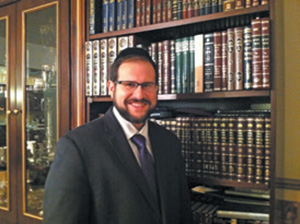
“So I was on a roll—I was an executive with a nice salary, annual bonuses and stock options, all the perks. Everything was on track…
“And on Monday, January 7, 2008, at 3 o’clock in the afternoon, in a small conference room on the top floor of our building, the president of the company wanted to have a quick meeting with me, which wasn’t unusual since he was my boss, but the meeting turned out to be even more brief than expected.
“He fired me.
“I’ll never forget how his words just sucked the breath right out of me. I left the conference room in a dazed state and I went home and curled up in my bed in the fetal position for three hours. While I could go on in vivid detail about how I felt, what it did to my self-esteem, my finances and so on, what I now realize is while that event created the greatest amount of discomfort I had ever felt, it was that discomfort, the departure from my ordered life, that forever changed it for the better.
“You see, friends, what makes you comfortable can ruin you, and what makes you uncomfortable is the only way to grow…”—Bill Eckstrom (TED talk—University of Nevada)
Almost every one of us has “skeletons in their closet,” things from our past that we would like to keep buried and hidden. In addition, there may be facets of our personalities that we try to keep beneath the surface. But, like it or not, those components of ourselves affect us and are very much part of us. The question in life is do we run from our past or do we seek to embrace our past and utilize it to grow by incorporating those vulnerabilities into who we become.
In the Purim story, Haman enacts a decree calling for genocide and complete obliteration of the Jewish nation. It is a vile, hateful and nefarious decree. Then, within three days Haman is dead, hanging on the very gallows he constructed for Mordechai. However, all is not well, because the evil decree has not been annulled.
Esther breaks down in tears before Achashverosh and implores him to annul the decree. Achashverosh is not forthcoming, replying, “Something written in the name of the king, and sealed with the ring of the king, cannot be repealed.” However, the king allows them to pass another decree, which allows them to defend themselves.
While the actual details of the Purim story may be a matter of history, the challenges, emotions and lessons of the story are contemporary. Par for the course of being human means that we have deficiencies, vulnerabilities, character defects and mishaps. At times, we beg God to remove those challenges and deficiencies. We become weary of our internal struggles and wish that we could just be free of their shackles.
The non-verbalized response from on high is that our challenges are “written in the name of the king and sealed with the ring of the king” and therefore cannot be repealed. However, it is within our ability to fight back and to defend ourselves from that internal strife. In fact, it is our mission and responsibility to do so. In so doing, we become greater and far more valuable people.
The incredible joy of Purim lines in the turnabout. All the energy invested in the destruction of the Jewish nation ended up being the vehicle of our enemies’ destruction and our elevation. When one is able to transform negative energy into positive energy, that is a tremendous accomplishment and a source of great celebration.
On Purim, we could not run from our adversaries; we had no choice but to face them and overcome them. Purim reminds us of the power of transformation. Instead of running from our past, we need to turn around, face those skeletons and utilize those challenges to propel us to greater heights, in which we can help others as well.
“V’na’hapoch hu”—the inversion of Purim is not merely one component of the story. Rather, it is part of the essence of the holiday. It is the ability to reclaim the past and use it as a stepping stone for the future. Our ancestors merited it back then, and we have the ability to draw from and to capitalize on that spiritual energy every year.
You see, friends, what makes you comfortable can ruin you, and what makes you uncomfortable is the only way to grow!
By Rabbi Dani Staum
Rabbi Dani Staum, LMSW, is the rabbi of Kehillat New Hempstead, guidance counselor and seventh-grade rebbe in ASHAR, principal at Mesivta Ohr Naftoli of New Windsor and a division head at Camp Dora Golding. He also presents parenting classes based on the acclaimed Love and Logic methods. His email address is: stamtorah@gmail.com. His website is: www.stamtorah.info.










